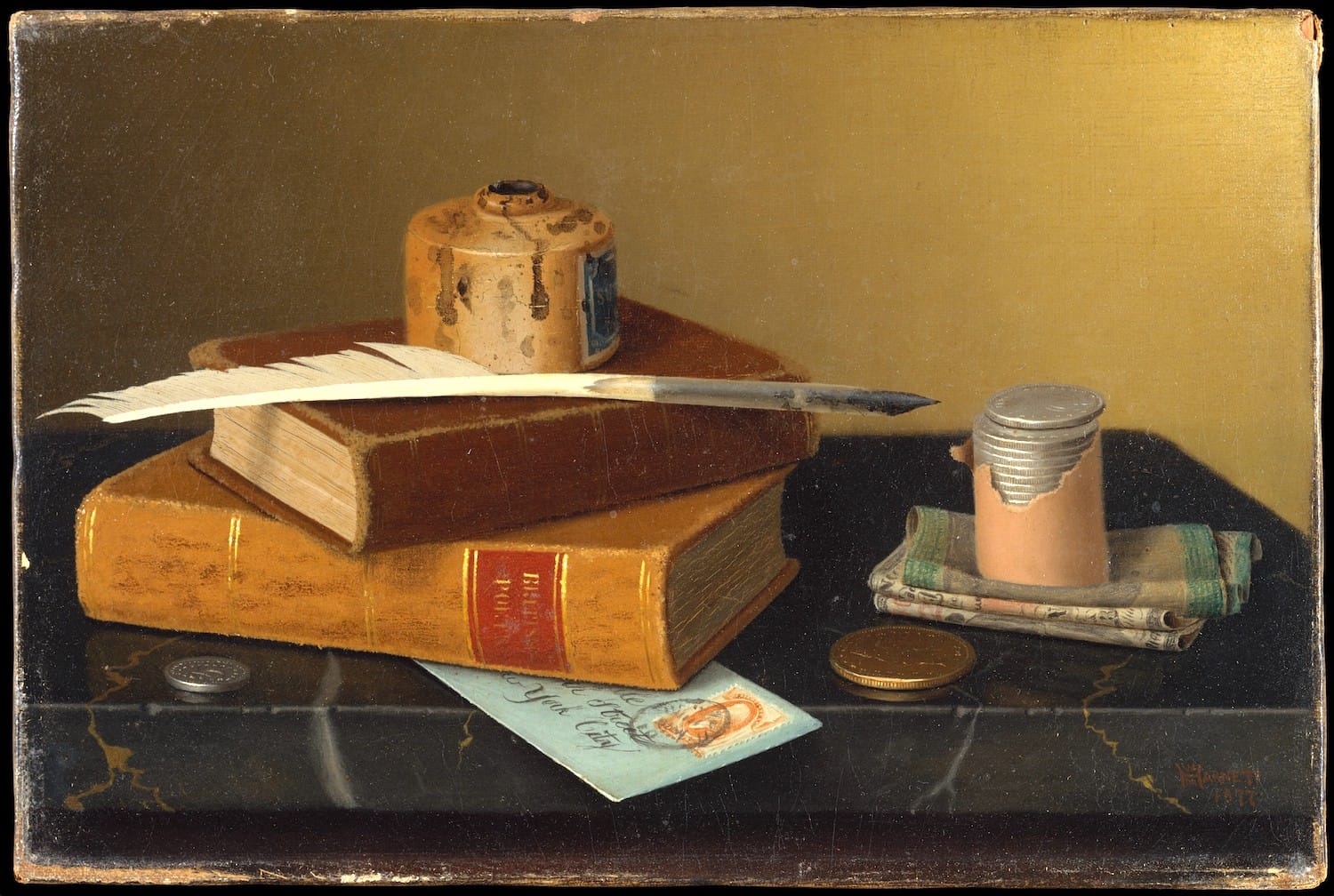You find yourself on the brink, the cusp, the verge — frozen at the edge of a sheer cliff, peering over it. How discomfiting, to regard that long fall!
And yet vertigo beckons. The void is a vortex and its voice whooshes loudly as you tip, tip, then tip-tip-tip forward. Now the sound swamps your head. Now you are are hurtling so hard that it hurts.
There is barely an instant to mourn the self who gazed down with uneasy wonder. You are the self that accelerates.
I must apologize for being unsure how you escaped from that scrape. Maybe you didn't! Or... maybe you had a parachute. Maybe you had better wings than Icarus. Perhaps a great bird swooped beneath you; with the grim alacrity of the desperate, you seized the shafts of feathers as wide as your thigh, and were borne forward into the unknown.
Look, anything might have happened. I simply can't say.
This month's theme, "on the brink," was chosen before the renewed bout of Black Lives Matter protests across the United States (as well as surprisingly large swathes of the rest of the world). "What a nice place to teeter," I quipped one week prior.
Of course, that remark only stands out in retrospect. Had things proceeded differently, some other coincidental utterance would seem salient.
I described Matthew Sweet's story, which inspired my theme choice, as "an elegy to the tantalizing apprehension of being on the verge of big things." In that state you don't know yet what will merit mention after the fact. Each moment is vital as it happens.
Narrative is our default sense-making technique, in part, because it reflects our fundamentally time-bound existence. We experience life as a succession of moments yielding a discernible past, present, and future. Likewise, while narratives can artfully play with the representation of time, they are typically structured in a manner that mirrors our experience. But narratives are not merely a chronological list of all events or happenings. They are selective and purposeful: events are included so as to yield or imply meaningful relationships, establishing not only what has happened but also why and with what significance.
Last week my mom and I rewatched Rodgers & Hammerstein's Cinderella (1997), the iconic version with erstwhile pop star Brandy as the lead and Whitney Houston playing her fairy godmother. I grew up singing along with the whole movie, so it was delightfully nostalgic to revisit.
Cinderella's usual plot (softer than the Grimm version) has always resonated with me, for the reason that Visakan articulated:
Cinderella can seem like a boring story on the surface — the interesting part of the story is what didn't happen. She didn't allow her experience to turn her into a bitter, angry person. It's a story about breaking the cycle of abuse
Anyway, I bring up Cinderella because the lyrics of "Impossible" struck me anew as I watched Whitney Houston belt 'em out through her incandescent smile. Two key stanzas:
But the world is full of zanies and fools
Who don't believe in sensible rules
And won't believe what sensible people say
And because these daft and dewy-eyed dopes
Keep building up impossible hopes
Impossible things are happening every day!
Ain't that the damn truth.
Naturally there is a sense in which each new invention is technically possible even before its discovery. The laws of physics change not a whit after the eureka moment! However, when we have yet to realize that we can do something, and therefore cannot, should it be labeled otherwise than impossible?
It gets trickier. Even the most minute act of noticing, if deemed significant, necessitates drafting a new map for the territory. Refresh to apply changes! Alas, beware the swarm of those who staked their reputations on the inviolability of status-quo maps. Such swarms have exhibited formidable emergent defense capabilities, including psychological warfare.
There are social consequences to iconoclasm, regardless of whether challenging a given sanctified consensus turns out to be "correct" or "on the right side of history" in retrospect. You must be brave enough, foolhardy and cocky enough, to attempt the impossible — and you must endure the social cost — if you want to accomplish anything new. There's no other way to find out whether your idea will work, since you'll always be told that it won't.
David MacIver summed things up:
- You will be punished for trying new things.
- You will be punished for trying things that don't work.
- You will be punished for trying to understand how good you are at something.
- You will be punished for succeeding.
The world is certainly full of zanies and fools. And challenging orthodoxy does tend to get you relegated thus. But don't despair, my friends! The future still belongs to "daft and dewy-eyed dopes." After all, that is how anyone willing to try is derided.
most people are so risk-averse that all calculated risks sound equally crazy to them. thus you can't rely on popular reaction to determine when it's time to take such a risk, nor which ones are smart bets
— sonya! supposedly? (@sonyasupposedly) April 30, 2020
Humans devote prodigious time and energy to attempting to discover hidden possibilities — heretofore unknown configurations of reality. We lust for these. (There's even "insight porn," har har.)
Why? I think it's simple: At no point in history has it been a smart long-term bet that novel and superior local maxima were unattainable.
The explore-exploit tradeoff is indeed a tradeoff; exploration entails risk. But if you never take risks, you will be creamed by those who 1) do and 2) are astute or lucky enough to win their bets. Tl;dr the Kelly criterion encodes a brilliant and critical insight.
i keep re-encountering with a shock the way that most people do not know, at all, that the problem the entire universe is devoted to, that it crashes us into walls, throws us off cliffs, tortures and murders us to try to solve, is that of escaping local maxima
— Chaos (@chaosprime) April 11, 2020
I suspect that humans need our innate curiosity drive for the same reason we need pain-aversive instincts; the reason why it's necessary for pain to feel awful; why pain and feeling awful are inextricable concepts. In short, we can't be trusted with the ability to turn that shit off.
Consider what [researcher Paul Brand] describes as the ultimate cause of the failure of years of research into creating ‘pain prosthetics’, computerized gloves & socks that would measure heat & pressure in real-time in order to warn those without pain like lepers or diabetics: the patients would just ignore the warnings, because stopping to prevent future problems was inconvenient while continuing paid off now. And when electrical shockers were added to the system to stop them from doing a dangerous thing, Brand observed patients simply disabling it to do the dangerous thing & re-enabling it afterwards!
(Myself, previously: "I would argue that our brains block us from explicit evaluation of risk when doing so might otherwise provide a chance to talk ourselves out of an overall protective heuristic.")
Furthermore, humans love novelty for the same reason why humans fear pain: Natural selection shaped us thus. "We are simply the embodied history of which organisms did in fact survive and reproduce, not which organisms ought prudentially to have survived and reproduced," to pick one among many, many relevant Eliezer Yudkowsky quotes. (I feel honor-bound to note that I disagree with his spiritual conclusions, but I have yet to write about that at length.)
Actually, I'll allow myself one more, because this is crucial:
When we're told that "The evolutionary purpose of anger is to increase inclusive genetic fitness," there's a tendency to slide to "The purpose of anger is reproduction" to "The cognitive purpose of anger is reproduction." No! The statistical regularity of ancestral history isn't in the brain, even subconsciously, any more than the designer's intentions of toast are in a toaster!
Thinking that your built-in anger-circuitry embodies an explicit desire to reproduce, is like thinking your hand is an embodied mental desire to pick things up.
Your hand is not wholly cut off from your mental desires. In particular circumstances, you can control the flexing of your fingers by an act of will. If you bend down and pick up a penny, then this may represent an act of will; but it is not an act of will that made your hand grow in the first place.
Yudkowsky's point is well-made; nonetheless he elides contentions over existential "purpose." For example, need the notion be inherently agentic? Consider:
According to the cybernetician, the purpose of a system is what it does. This is a basic dictum. It stands for a bald fact, which makes a better starting point in seeking understanding than the familiar attributions of good intentions, prejudices about expectations, moral judgements, or sheer ignorance of circumstances.
Last section. Bear with me, this one's short.
Remember how Whitney Houston died? OD'd in the bathtub. 2017. Cat Marnell eulogized her, from the perspective of a fellow addict, closing her essay defiantly:
I'm not going to shut up about this stuff; I'll keep mentioning drugs in my columns so long as they are in not only my life, but in the world all around us, which they always will be. In a big way.
You call it oversharing; I call it a life instinct. Because look. Look how easy it is, even when you are Whitney fucking Houston, to withdraw your voice and pretend like you're a good girl and not mention that you're using. To slip silently into the water. To disappear.
Self-expectations are vulnerable to these tragic feedback loops. "I can tell you that people who regularly take to their beds on loads of drugs are not unprepared to die," Marnell wrote.
There is barely an instant to mourn the self who gazed down with uneasy wonder. You are the self that accelerates.
What people believe can happen matters tremendously. "Impossible / For a plain country bumpkin / And a prince to join in marriage." Only until the fairy godmother shows up!
Despair is an impossibility space, but so is hope. Sure, I'm one of those "daft and dewy-eyed dopes." Call it a life instinct.




